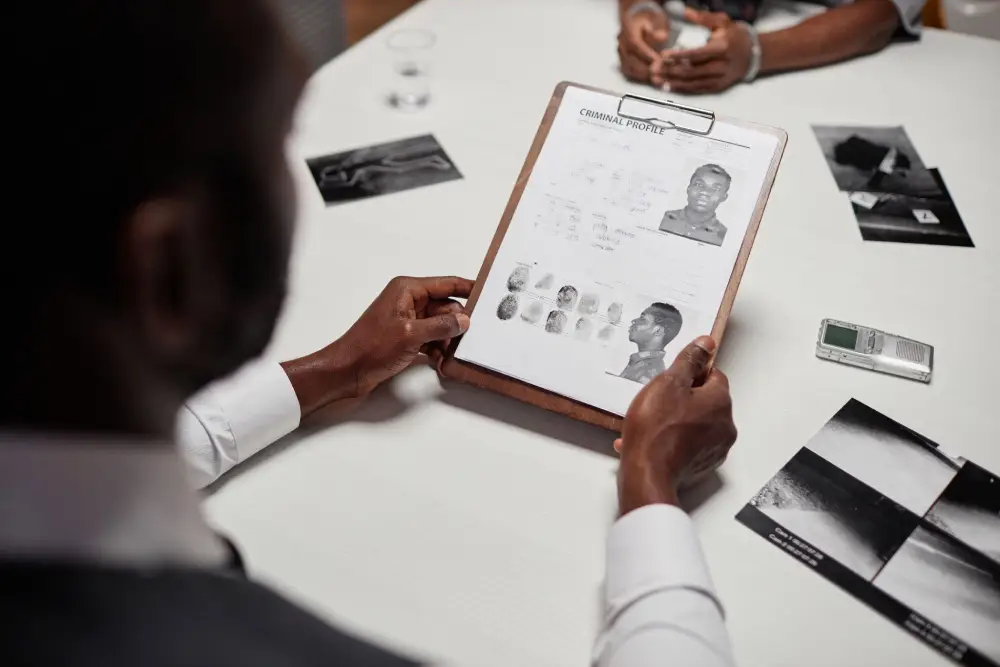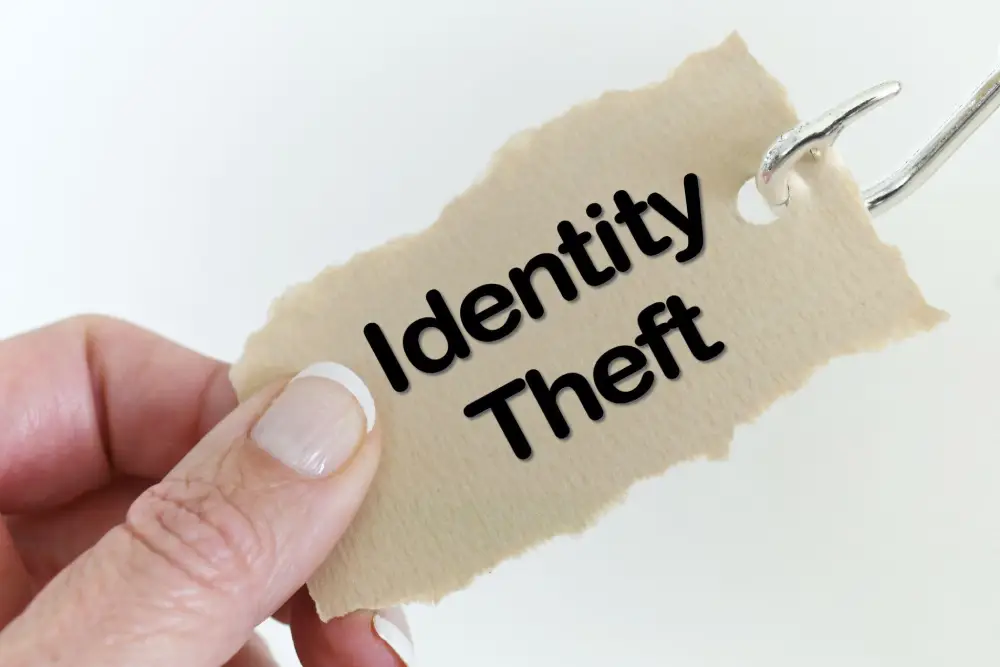“Identity theft isn’t just about stolen credit cards anymore. It’s digital. It’s fast. And it’s exploding.”
I’m Michael Gowdey, and I’ve been defending clients across Nevada against serious criminal charges for more than 25 years. Identity theft used to be rare. Now it’s one of the fastest-growing crimes in Clark County—and prosecutors are cracking down hard.
The FBI’s 2022 Internet Crime Report shows identity theft and related cybercrimes cost Americans $10.3 billion in losses—a record high. Nevada ranks among the top 10 states for identity theft complaints per capita, according to the Federal Trade Commission (FTC).
Here’s what that means: even one accusation, even one misused account, can result in a felony charge. A conviction doesn’t just threaten your freedom—it threatens your reputation, your career, and your future.
But here’s the good news: identity theft charges can be fought. With the right legal strategy, you may be able to get the charges reduced, dropped, or dismissed entirely.
This guide covers everything you need to know—from legal definitions to defenses—and how my firm helps clients protect their rights every day in Las Vegas, Henderson, and North Las Vegas.
Let’s break it down.

What Is Identity Theft Under Nevada Law?
In Nevada, identity theft is covered under NRS 205.463. It refers to the unauthorized use of another person’s personal identifying information (PII) to harm them or for unlawful gain. This could include names, addresses, Social Security numbers, driver’s license numbers, credit card numbers, or other private data.
Common Examples:
- Opening credit cards or loans under another person’s name
- Using someone else’s ID to rent property or buy merchandise
- Filing false tax returns using another person’s information
- Impersonating someone online or by phone to gain access to accounts
It’s important to know: you don’t need to financially benefit to be charged. Just using the info unlawfully is enough.
Related Charges in Nevada
Identity theft charges are often filed alongside:
- Forgery (NRS 205.090–205.135)
- Credit card fraud (NRS 205.760–205.780)
- Computer crimes (NRS 205.4765)
- Impersonation (NRS 205.450)
These charges can be stacked, leading to more severe penalties if convicted.
Penalties for Identity Theft in Nevada
Identity theft is a Category B felony in Nevada. The standard penalties include:
- 1 to 20 years in prison (depending on the case)
- Up to $100,000 in fines
- Restitution to the victim
- Permanent criminal record
Penalties can increase if:
- The victim is an elderly or vulnerable person
- The offense involves multiple victims
- The information was obtained through hacking or data breaches
For example, using stolen PII to commit a felony (e.g., fraud or theft) adds 2–20 years in prison per offense under NRS 205.465.
Federal vs. State Charges
You could face both Nevada state and federal charges for identity theft. Federal law under 18 U.S. Code § 1028 carries its own penalties:
- Up to 15 years in federal prison
- Asset forfeiture
- Mandatory restitution
Federal investigations often involve agencies like the FBI, IRS, or U.S. Secret Service. These cases typically arise from interstate fraud or digital crimes involving multiple victims.
Identity Theft Investigations in Clark County
In Las Vegas, Henderson, and North Las Vegas, identity theft is usually investigated by:
- Las Vegas Metropolitan Police Department (LVMPD)
- Henderson Police Department
- North Las Vegas Police Department
- Nevada Attorney General’s Office (Cyber Crime Unit)
Investigations may include:
- Subpoenas for phone and email records
- Digital forensics of computers or mobile devices
- Surveillance footage from ATM and point-of-sale systems
- Witness testimony and bank data
This means law enforcement often builds a long paper trail before making an arrest.
Legal Defenses Against Identity Theft Charges
No two cases are the same—but many identity theft charges can be challenged. Here are proven defenses I’ve used for clients:
1. Lack of Intent
If you did not knowingly or willfully use someone else’s information unlawfully, it’s a strong defense. Mistakes or accidents aren’t crimes.
2. False Accusations or Mistaken Identity
Someone may accuse you out of revenge, or law enforcement may misidentify the suspect. Digital forensics can clear your name.
3. No Unauthorized Use
If the person gave you permission (explicitly or implicitly), or the data wasn’t private, it might not qualify as identity theft under Nevada law.
4. Violation of Rights During Investigation
Illegal searches, improper digital surveillance, or coerced confessions can lead to evidence being thrown out.
5. Insufficient Evidence
The prosecution must prove you were the one who used the data, that you knew it was stolen, and that you used it unlawfully. If they can’t, the charges don’t stand.
What to Do If You’re Charged
If you’re arrested or even questioned in connection with identity theft:
- Do not talk to police without a lawyer.
- Don’t consent to a search of your devices.
- Hire a criminal defense attorney immediately.
- Do not delete emails, messages, or digital files.
Trying to “clean up” could look like obstruction of justice.
Collateral Consequences of a Conviction
A conviction for identity theft doesn’t just mean prison time:
- Employers may refuse to hire you
- You can lose your professional license (real estate, nursing, etc.)
- Banks may deny you credit
- Immigration status can be impacted (non-citizens face deportation)
- You’ll face long-term monitoring by law enforcement
In short, it follows you for life.
How We Defend Identity Theft Cases
At The Law Offices of Michael I. Gowdey, we take a strategic approach:
- Challenge the evidence (searches, data trails, warrants)
- Interview witnesses and uncover motive for false claims
- Bring in forensic experts to analyze digital footprints
- Negotiate aggressively with prosecutors for charge reductions
- Push for dismissal when the state’s case is weak
Many of our clients walk away with no conviction—or have their records sealed later.
Can You Seal an Identity Theft Charge in Nevada?
Yes—but only if the case is dismissed or you complete probation successfully.
- Felony convictions: Must wait 5 years from end of sentence
- Dismissals or acquittals: Eligible immediately
We assist clients with the record-sealing process once the case is resolved.
Fight Smart, Move Forward
Identity theft is serious. The penalties are real. But with an experienced defense attorney, your case can be challenged—and your future protected.
Whether you’ve been charged or think you’re under investigation, don’t wait.
Call The Law Offices of Michael I. Gowdey today for a confidential consultation. Let’s take the first step toward clearing your name.

